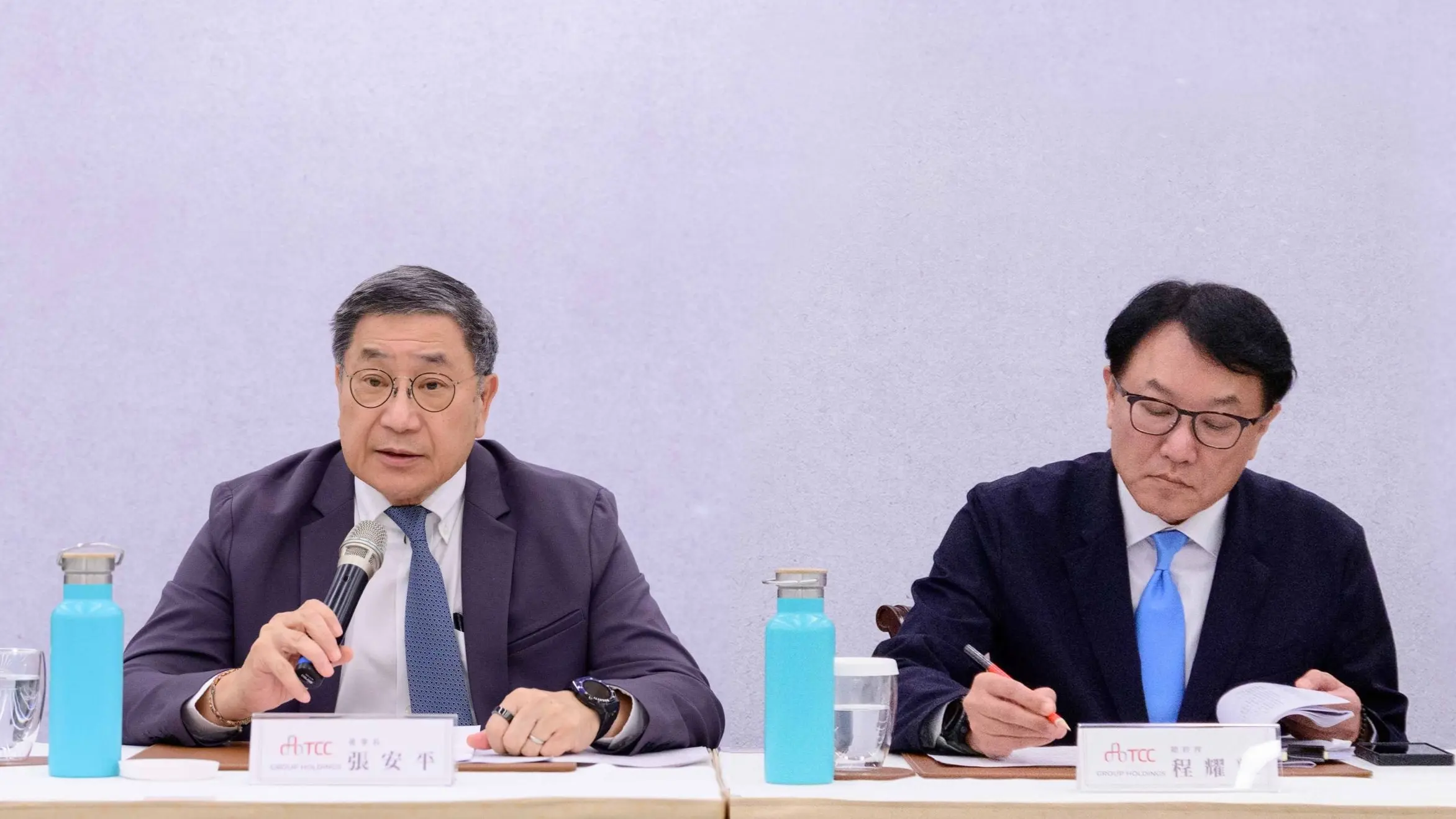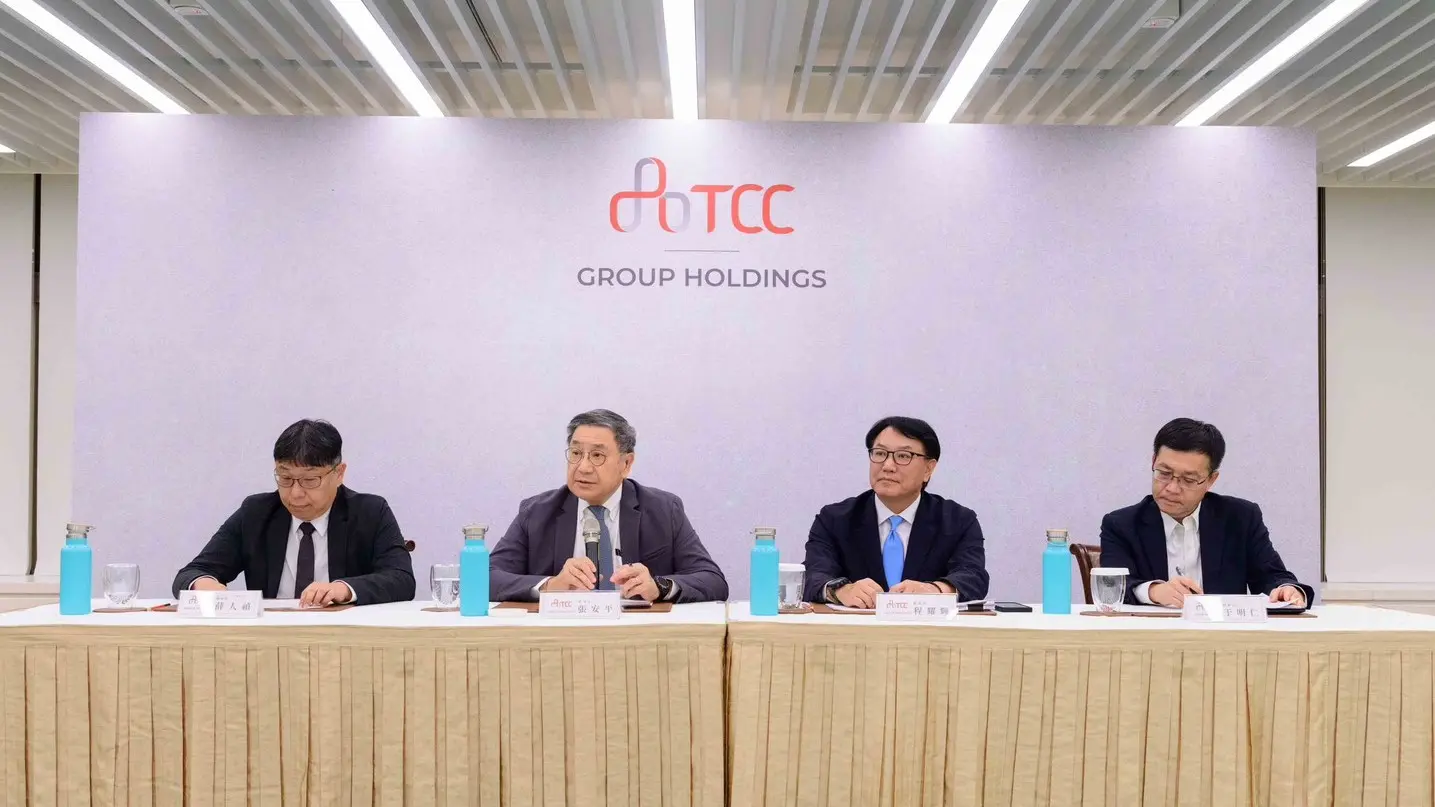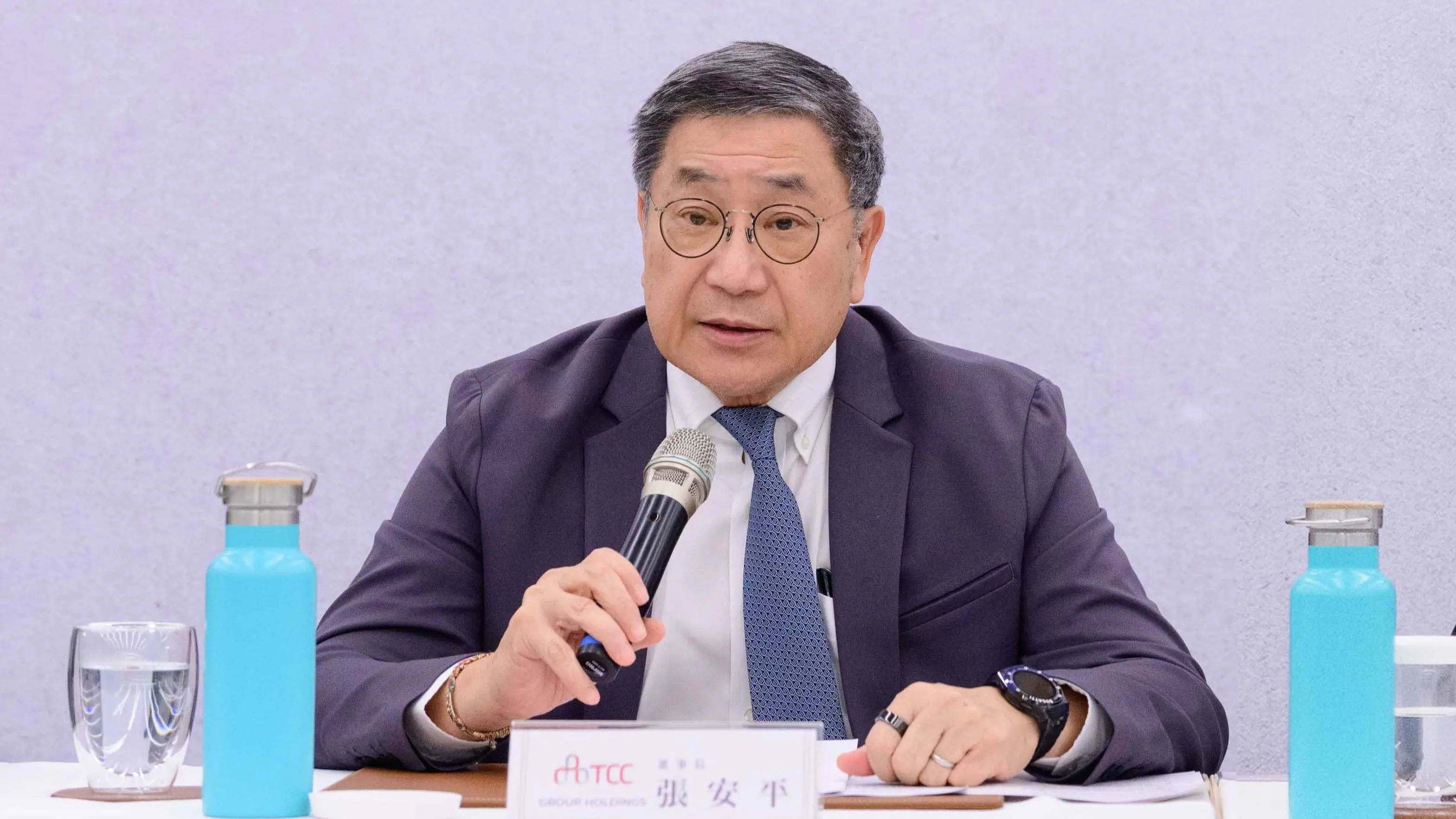S&P Global Ratings: TCC Group Holdings Co. Ltd. Ratings Affirmed On Financial Resilience; Outlook Stable
S&P Global Ratings: TCC Group Holdings Co. Ltd. Ratings Affirmed On Financial Resilience; Outlook Stable
2025.08.26
-
Copied

The following content is extracted from the official press release issued by S&P Global Ratings.
Rating Action Overview
• TCC Group Holdings Co. Ltd.'s EBITDA will likely dip in 2025-2026 due to operational disruptions at some plants and a prolonged shutdown of a fire-damaged battery plant.
• However, we forecast the Taiwan-based cement company will reprioritize its capital expenditure (capex) and improve operation efficiency such that its cash flow improves over the period.
• We affirmed our 'BBB-' long-term issuer credit rating on the company.
• The stable rating outlook reflects our view that TCC could strengthen its leverage over the next 12-24 months after a slight deterioration in 2025.
Rating Action Rationale
TCC's EBITDA is likely to be significantly weaker than we forecast in 2025-2026. This is partly due to a series of operational disruptions at the company's cement, power generation, and battery plants in Taiwan. We forecast consolidated EBITDA will decline to New Taiwan dollar (NT$) 30 billion-NT$32 billion in 2025 from NT$33.6 billion in 2024, before recovering to NT$36 billion-NT$39 billion in 2026 as operations normalize.
A major fire at TCC's new battery plant in July could significantly constrain the segment's revenue and cash flow over the next one to two years. The fire will likely result in a prolonged suspension of operations at the plant in Kaohsiung, and uncertainty remains over permits required from the local government. TCC estimates the factory damage will result in a loss of approximately NT$16.4 billion, excluding insurance recoveries.
To mitigate the impact, TCC could accelerate outsourcing from original equipment manufacturers and expand capacity at its plant in Tainan City. Nonetheless, we believe the incremental output will be insufficient to fully offset the lost capacity due to the fire. TCC will face significant challenges in fulfilling orders for specialized high-end products, making breakeven at its battery business tough in 2025-2026.
Further, the company reported an unexpected downtime at its power generation units under Ho Ping Power in the second quarter of 2025, resulting in suspension of operations for several weeks and a first-half operating loss for the business. TCC's cement operations in Taiwan were also hit by mechanical failures at two plants, leading to revenue losses in the first half of 2025.
Meanwhile, currency and political turbulence has dampened TCC's Turkish cement operations under TCC OYAK Amsterdam Holdings B.V., and a stabilization of operations is uncertain over the next few quarters.
Adequate measures to address operational risks will be critical. Our base case assumes TCC will take adequate actions to cap further effects of the operational accidents. However, those accidents expose deficiencies in the company’s operational risk management, in our opinion.
We believe the company's ability to strengthen its risk management framework--likely through measures such as enhanced insurance coverage, more rigorous equipment maintenance, and broader contingency measures--will be essential to mitigate recurrence risks. Businesses with higher public safety exposure, such as batteries, and those more vulnerable to operational interruptions, such as cement and power generation, could materially affect cash flow stability and leverage if similar events recur.
TCC's financial flexibility and spending curbs could prevent deterioration in credit metrics. We only incorporate NT$8 billion-NT$9 billion of reconstruction capex for the fire-damaged battery plant over 2026–2027. This is because the company plans to take a more asset-light approach for its battery business. TCC also plans to scale back capex at its other businesses to limit debt growth. The reconstruction capex will keep overall capex elevated at NT$24 billion–NT$28 billion annually in 2025-2026. This includes for initiatives critical for the group’s strategic transition and long-term competitiveness.
The increased capex, coupled with near-term EBITDA weakness, will likely push up TCC's adjusted debt to NT$94 billion–NT$97 billion by 2026 from NT$90.2 billion at the end of 2024. The ratio of debt to EBITDA will likely rise to about 3.0x in 2025 from 2.7x in 2024, before moderating to 2.5x–2.7x in 2026 as EBITDA recovers.
In addition, asset monetization could provide additional financial flexibility for TCC over the next one to two years. The company holds a sizable pool of monetizable assets, including land in key urban areas; it has concrete plans to develop or dispose of idle parcels over the next few years. These monetizable assets provide a buffer against potential operational setbacks, helping to mitigate leverage risk and preserve rating headroom. Our base case does not factor in any potential asset disposals.
S&P Global Ratings believes there is a high degree of unpredictability around policy implementation by the U.S. administration and possible responses-- specifically with regard to tariffs--and the potential effect on economies, supply chains, and credit conditions around the world. As a result, our baseline forecasts carry a significant amount of uncertainty, magnified by ongoing regional geopolitical conflicts. As situations evolve, we will gauge the macro and credit materiality of potential and actual policy shifts and reassess our guidance accordingly.
Outlook
The stable rating outlook reflects our view that TCC's EBITDA will gradually recover over the next one to two years after an earnings setback in the first half of 2025. We forecast the company's ratio of debt to EBITDA will improve to 2.5x–2.7x in 2026 from approximately 3.0x in 2025.
We forecast multiple operational disruptions in the first half of 2025 will lower TCC's EBITDA in 2025, compared with 2024. However, earnings should strengthen from the second half of 2025, supported by stabilized and higher profit margin contribution from the group's European cement business, a modest recovery in China operations, and a gradual recovery in sales and market share in the Taiwan cement market.
In addition, lower capex for non-battery businesses to accommodate reconstruction investments at the battery plant should help contain debt growth and preserve financial flexibility.
More Related Information
-
 2025.08.13TCC's Nelson Chang Apologizes for Kaohsiung MQE Battery Plant Fire, Initiates Diversified Strategies Including Overseas OEM to Ensure Uninterrupted Battery Cell Supply
2025.08.13TCC's Nelson Chang Apologizes for Kaohsiung MQE Battery Plant Fire, Initiates Diversified Strategies Including Overseas OEM to Ensure Uninterrupted Battery Cell Supply -
 2025.08.13TCC Estimates 11 Billion NTD Loss From Kaohsiung MQE Battery Plant Fire; Human Operation or Mechanical Defects Suspected
2025.08.13TCC Estimates 11 Billion NTD Loss From Kaohsiung MQE Battery Plant Fire; Human Operation or Mechanical Defects Suspected -
 2025.08.13Forged Through Setbacks, Keep Moving Forward for Taiwan's Battery Cell Technology
2025.08.13Forged Through Setbacks, Keep Moving Forward for Taiwan's Battery Cell Technology


